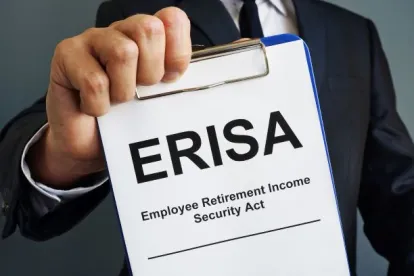The Sixth Circuit, in a matter of first impression for that Circuit, held an arbitration clause contained in an individual employment agreement did not apply to ERISA fiduciary breach claims brought on behalf of a defined contribution plan. The case is Hawkins et al. v. Cintas Corp., No. 21-2156, __ F.4th __, 2022 WL 1236954 (6th Cir. 2022).
Plaintiffs, former Cintas Corp. employees, sued the company and its investment committee under Section 502(a)(2) of ERISA on behalf of its 401(k) plan, alleging that defendants breached their fiduciary duties of prudence and loyalty with respect to the management of the plan. Cintas moved to compel arbitration, arguing that an arbitration clause in plaintiffs’ employment agreements covered the claims they now sought to bring.
Last year, a judge in the Southern District of Ohio denied defendants’ motion to compel arbitration, reasoning that individual arbitration agreements could not cover claims under Section 502(a)(2) because such claims are brought on behalf of the plan.
The Sixth Circuit affirmed. While the court stopped short of deciding whether Section 502(a)(2) claims could ever fall within the scope of an arbitration clause in an individual employment agreement, it held that plaintiffs’ claims did not fall within the arbitration clauses here. The court reasoned that because such claims “belong” to the Plan, they cannot be forced into arbitration based on agreements that bind only individual participants. Moreover, the court found that, in this case, the agreements established only plaintiffs’ consent to arbitration, but not the plan’s.
Proskauer’s Perspective
The Sixth Circuit’s decision is notable in several ways. For one, it joins the Second, Seventh, and Ninth Circuits in rejecting arbitration of Section 502(a)(2) claims based on a clause in an individual employment agreement, though these courts reached the same result based on varied reasons, including that the clause did not reach ERISA claims (as opposed to typical employment-related claims) and that the clause violated the “effective vindication” exception to the Federal Arbitration Act where it would limit the relief authorized under Section 502(a)(2) (see our previous blog posts discussing the Second and Seventh Circuit decisions).
Additionally, the Sixth Circuit explicitly limited its decision to the arbitration clause contained in the employment agreements but left open the question of whether an arbitration clause in a plan document would lead to a different result, as it did in the Ninth Circuit in 2019 (see our previous post). Given the increased use of arbitration clauses and frequency with which plaintiffs bring ERISA fiduciary breach claims, courts outside the Ninth Circuit may very well face this question in the near future.




 />i
/>i

